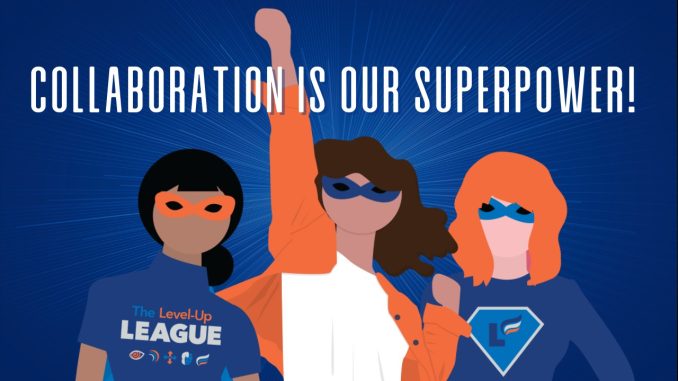
The contemporary business landscape, often characterized by relentless pursuit of market share and individual triumph, has long championed the mantra of competition. From cutthroat pricing wars to aggressive marketing campaigns, the prevailing wisdom has been that to succeed, one must outmaneuver and overpower rivals. However, a growing body of evidence, alongside a shift in organizational philosophy, suggests a more potent and sustainable path to prosperity: **collaboration over competition**. This isn’t merely a feel-good platitude; it’s a strategic imperative that can unlock unparalleled innovation, foster resilience, and cultivate a more equitable and productive ecosystem for all.
—
### Redefining Success: Beyond Zero-Sum Games
The traditional competitive paradigm often frames success as a zero-sum game, where one entity’s gain inherently necessitates another’s loss. This mindset, while seemingly intuitive, can limit potential and create an environment of distrust and scarcity. In contrast, collaboration operates on the principle of **value creation**, recognizing that shared effort can lead to outcomes far greater than what any single entity could achieve alone. Imagine two technology companies, each developing distinct yet complementary software solutions. Rather than vying for the same limited pool of customers, they could collaborate to integrate their platforms, offering a more comprehensive and appealing package to users. This not only expands their collective market reach but also enhances customer satisfaction, creating a win-win scenario. This isn’t about eliminating competition entirely, but rather understanding that there are moments when combining forces yields superior results for everyone involved.
—
### The Innovation Catalyst: Collective Brainpower
Perhaps one of the most compelling arguments for collaboration lies in its remarkable ability to accelerate **innovation**. When diverse minds, skill sets, and perspectives converge, the potential for groundbreaking ideas explodes. Think of the open-source software movement, a prime example of collaboration on a global scale. Thousands of developers, often geographically dispersed and with no direct financial ties, contribute to projects like Linux, continuously refining and improving them. No single company, no matter how well-resourced, could replicate the speed and breadth of innovation achieved through such collective effort. In a business context, this translates to joint ventures, strategic alliances, and even internal cross-functional teams. By breaking down silos and encouraging the free exchange of ideas, organizations can foster a culture where creativity flourishes, leading to new products, services, and solutions that might otherwise remain undiscovered. The synergy generated from collaborative brainstorming sessions often unearths solutions that were invisible when viewed through a singular lens.
—
### Building Resilience and Shared Risk
The volatile nature of today’s global economy means that even the most established businesses can face unforeseen challenges. Here, collaboration acts as a powerful **buffer against adversity**. By sharing resources, expertise, and even risks, companies can navigate turbulent times with greater stability. Consider the response to a natural disaster. Instead of each business struggling independently to recover, a collaborative effort among local businesses, government agencies, and non-profits can streamline aid, rebuild infrastructure, and support affected communities more effectively. In a commercial sense, this might manifest as co-investment in research and development, joint lobbying efforts to influence policy, or even shared supply chains to mitigate disruption. When burdens are shared, they become lighter, and the collective ability to withstand shocks is significantly enhanced. This collective resilience not only safeguards individual enterprises but also strengthens entire industries.
—
### Fostering a Culture of Trust and Growth
Beyond the tangible benefits, collaboration cultivates a more positive and productive organizational culture. When employees are encouraged to collaborate, rather than constantly compete against their colleagues, a sense of **trust and mutual respect** blossoms. This fosters an environment where knowledge sharing is natural, mistakes are viewed as learning opportunities, and individual successes are celebrated as collective achievements. Contrast this with highly competitive internal environments that can breed resentment, secrecy, and ultimately, hinder overall productivity. For example, a sales team where individuals hoard leads and information might achieve short-term personal gains, but the overall team performance and long-term client relationships will likely suffer. Conversely, a team that openly shares strategies, customer insights, and best practices will likely achieve far greater collective success and build stronger, more enduring client relationships. This shift in mindset from “me” to “we” not only improves internal dynamics but also projects a more cohesive and trustworthy image to clients and partners.
—
### The Path Forward: Embracing a Collaborative Mindset
Embracing collaboration isn’t about abandoning the competitive spirit entirely. Healthy competition can still drive efficiency and motivate excellence. The key lies in understanding when to compete and when to collaborate. It’s about recognizing that in an increasingly interconnected world, the greatest triumphs often emerge from shared endeavors. For businesses, this means actively seeking out opportunities for strategic partnerships, fostering cross-functional teams, and investing in technologies that facilitate seamless communication and information exchange. It requires a shift in leadership philosophy, moving away from a command-and-control approach to one that champions empowerment, transparency, and collective ownership. The power of collaboration over competition is not a revolutionary concept, but rather a rediscovery of fundamental human principles that, when applied strategically in the business realm, can unlock unprecedented levels of success, foster genuine innovation, and build a more resilient and prosperous future for all. As we navigate the complexities of the 21st century, the ability to work together, to share and to create collectively, will undoubtedly be the ultimate differentiator for enduring success.